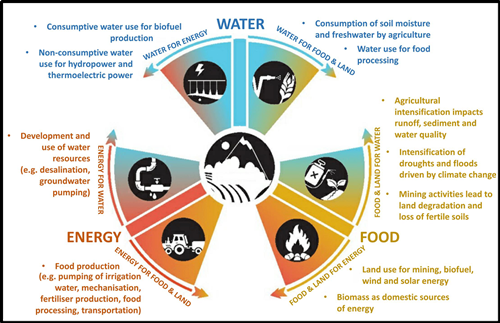The Water-Energy-Food Nexus (WEF Nexus) describes the complex and inter-related nature of global resource systems. It means that the three goals — water security, energy security and food security — are inextricably linked and that changes in one area have impacts in one or both of the others (FAO, 2014). In this context, the WEF Nexus has emerged as a useful way to address the complex and interrelated issues of sustainable natural resource management. It provides a conceptual approach to better understand and systematically analyze the interactions between the natural environment and human activities in order to achieve optimal management strategies to meet sustainable development goals (UN). By identifying and balancing the trade-offs among different stakeholders (sectors, communities and individuals) synergy can be achieved, allowing for more integrated and cost-effective planning, decision-making, implementation, monitoring and evaluation.Climate patterns have noticeably changed, leading to more frequent floods and severe droughts that damage crops, affected fisheries and altered ecosystem services.
WEF Nexus has become an effective way to address the complex and interrelated issues of sustainable natural resource management. It provides a conceptual approach to better understand and systematically analyze the interactions between the natural environment and human activities in order to achieve optimal management strategies to meet the UN SDGs.
The group aims to :
Understand the cost and benefits at regional scale through cost and benefits analysis, including trade-offs and benefits, across sectors, communities and boundaries.

